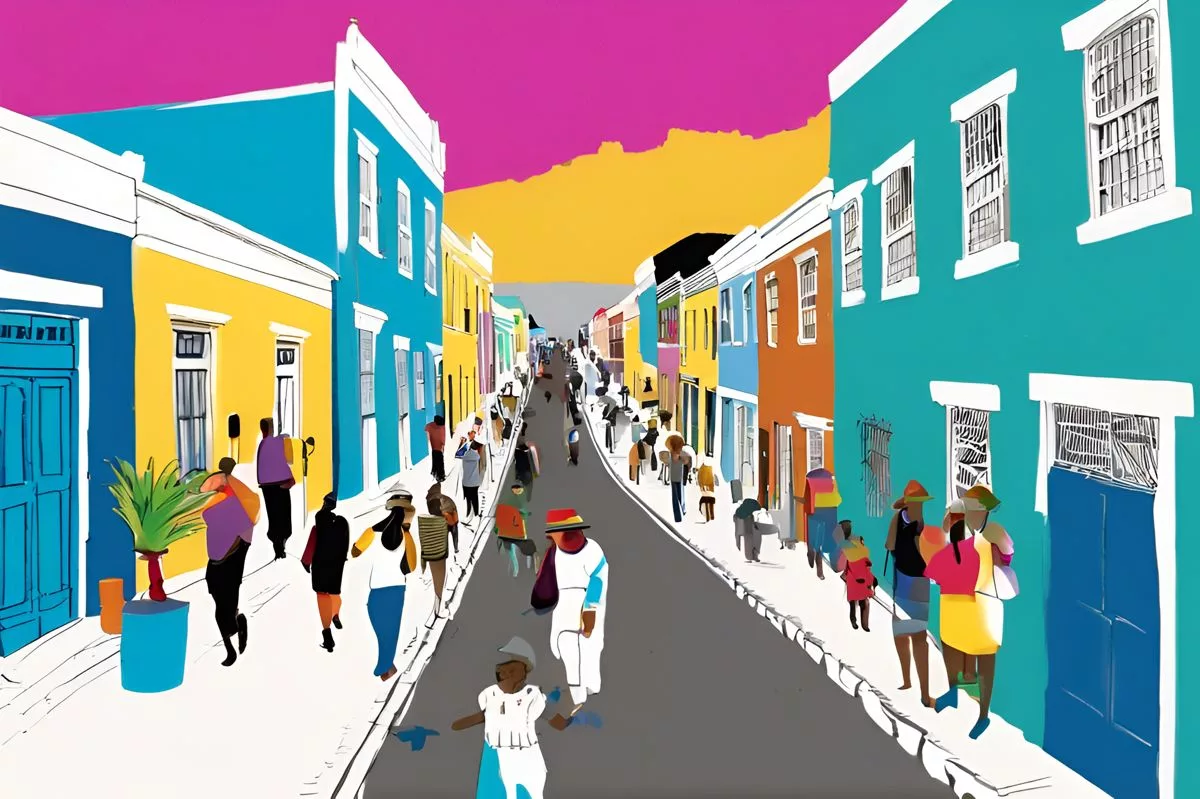South Africa is making a bold assertion of inclusion by committing to protect and advance the rights of individuals with disabilities. The country is incorporating the United Nations Convention on the Rights of Persons with Disabilities into domestic law and establishing protectors to ensure that the rights of persons with disabilities are not violated. South Africa’s commitment to disability rights is demonstrated through its actions towards building an inclusive society where everyone can thrive.
South Africa has proclaimed its unyielding resolve to protect and advance the rights of individuals with disabilities. The country is working to incorporate the United Nations Convention on the Rights of Persons with Disabilities into domestic law and has established protectors to guarantee that the rights of persons with disabilities are not violated. South Africa’s commitment to the cause of disability rights is demonstrated through its actions towards building an inclusive society where everyone has the chance to flourish.
South Africa, a nation pulsating with energy and commitment, proclaimed its unyielding resolve to protect and advance the rights of individuals with disabilities during the 55th meeting of the Human Rights Council. At this gathering, the sentiments expressed by Minister Naledi Pandor were illuminating, revealing the nation’s unwavering commitment to fortify and actualize the rights of persons with disabilities, fostering their complete and triumphant integration into society.
In an often indifferent and intolerant world towards individuals with disabilities, South Africa distinguishes itself as a lighthouse of forward-thinking and action. The passionate speech delivered by Minister Pandor to the council President and members endorsed the country’s commitment to turn words into deeds.
Minister Pandor’s eloquent speech demonstrated a profound comprehension of the intricate network of services indispensable for individuals with disabilities to perform everyday duties and to be completely involved in their communities. Echoing this crucial need, the South African Law Reform Commission is industriously working to incorporate the United Nations Convention on the Rights of Persons with Disabilities into domestic law.
Advancing Inclusivity: The Legislative Journey
The legislative initiative in motion is poised to supersede the current White Paper on the rights of individuals with disabilities by the conclusion of this year. This significant step is a clear reflection of the country’s aspiration to adopt a disability rights-based approach to care and support.
The proposed law finds its essence in the values embodied in South Africa’s Constitution – values of inclusivity and ensuring the rights of persons with disabilities. The alignment of domestic laws with these constitutional principles is aimed at ensuring that no person is overlooked or left behind in the journey towards progress.
South Africa’s obligation stretches beyond the enactment of laws. The country endeavors to ensure a life of dignity, autonomy, and liberty for individuals with disabilities. This objective is reflected in pragmatic measures guaranteeing accessibility to health and educational facilities for persons with disabilities.
Building a Harmonious Society: Safeguarding Rights and Dignity
Furthermore, the country has established protectors to guarantee that the rights of persons with disabilities are not violated by the indifference or intolerance of the able-bodied community. In doing so, South Africa is laying the foundation for a harmonious society where each person is treated with respect and dignity.
Showcasing a commitment to international agreements, South Africa has duly complied with its reporting responsibilities related to the Convention on the Rights of Persons with Disabilities. The Convention provides an extensive framework and designates specific obligations for support, and South Africa’s punctual compliance with these obligations is a testament to its dedication to the cause.
The country has also voiced its support for the UN Disability Inclusion Strategy and aims to cultivate collaborations with persons with disabilities. These alliances are viewed as a route to stimulate technical cooperation and progress. South Africa is particularly concentrated on empowering individuals with disabilities of all ages, with a special emphasis on women, at both the national and regional levels to uphold human rights.
Reflections on South Africa’s Commitment: Actions Speak Louder Than Words
Minister Pandor’s speech, a harmonious blend of dedication and foresight, encapsulates South Africa’s commitment to the cause of disability rights. The nation rises high, not just in its pledge, but also in its actions, as it ceaselessly works to build an inclusive society where everyone has the chance to flourish.
1. What is South Africa’s commitment to disability rights?
South Africa is committed to protecting and advancing the rights of individuals with disabilities, incorporating the United Nations Convention on the Rights of Persons with Disabilities into domestic law, and establishing protectors to ensure that the rights of persons with disabilities are not violated.
2. What legislative initiatives are in place to advance inclusivity?
South Africa is working to supersede the current White Paper on the rights of individuals with disabilities with proposed legislation that aligns with the values embodied in South Africa’s Constitution – values of inclusivity and ensuring the rights of persons with disabilities.
3. What measures is South Africa taking to ensure accessibility to health and educational facilities for persons with disabilities?
South Africa is taking pragmatic measures to guarantee accessibility to health and educational facilities for persons with disabilities.
4. What protectors has South Africa established to safeguard the rights of persons with disabilities?
South Africa has established protectors to guarantee that the rights of persons with disabilities are not violated by the indifference or intolerance of the able-bodied community.
5. How is South Africa complying with its reporting responsibilities related to the Convention on the Rights of Persons with Disabilities?
South Africa is complying with its reporting responsibilities related to the Convention on the Rights of Persons with Disabilities in a punctual manner.
6. How is South Africa empowering individuals with disabilities?
South Africa is empowering individuals with disabilities of all ages, with a special emphasis on women, at both the national and regional levels to uphold human rights.










